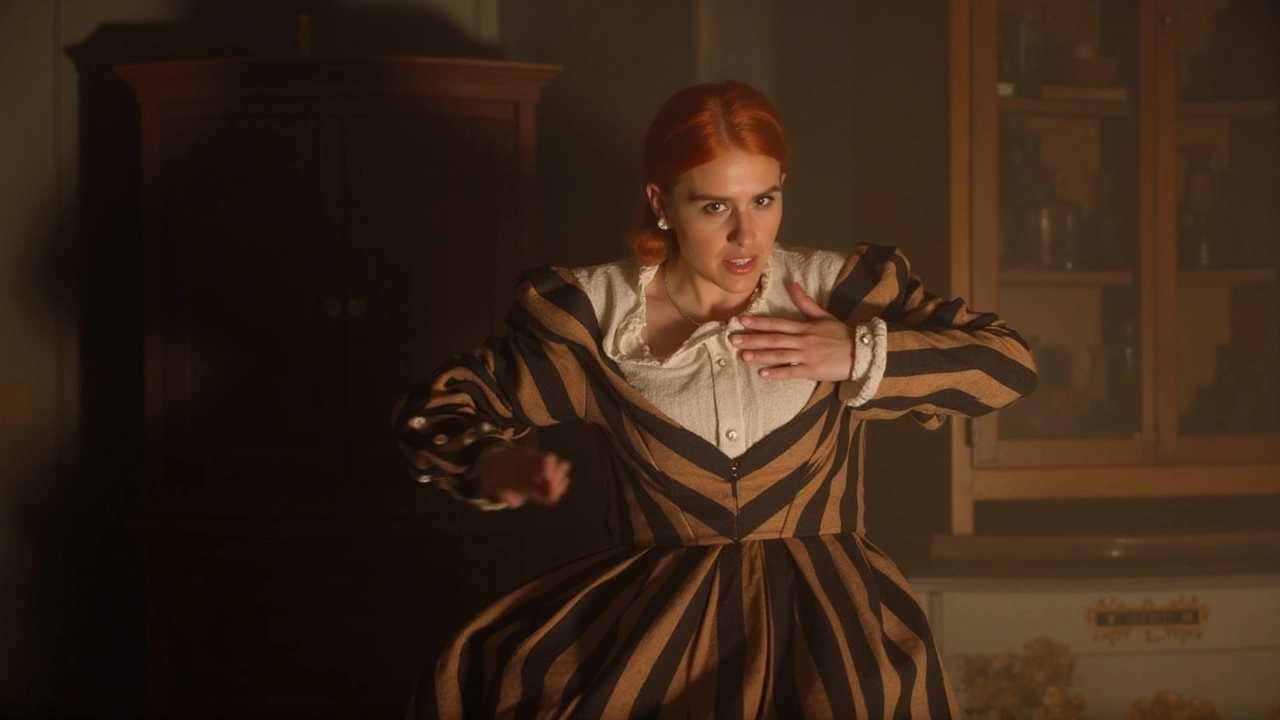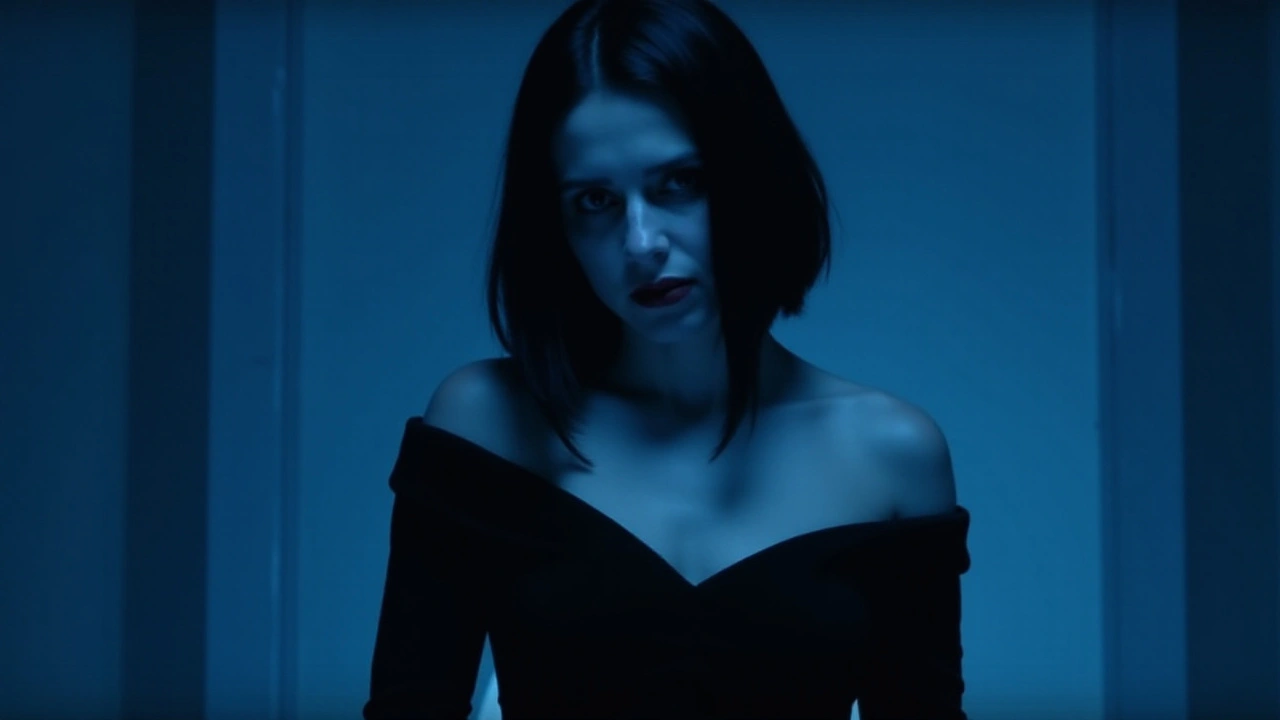The Intriguing Conclusion of Nosferatu's 2024 Remake
The 2024 remake of 'Nosferatu,' directed by visionary filmmaker Robert Eggers, offers a fresh take on the iconic horror classic while staying true to its haunting essence. With a talented cast including Lily-Rose Depp as Ellen Hutter and Bill Skarsgård as the sinister Count Orlok, this reinterpretation brings depth and nuance to a tale that has enthralled audiences for over a century. The film's dramatic conclusion, where Ellen willingly offers her blood to Count Orlok in a sacrificial act, has captivated viewers and left many pondering the layers of meaning behind her pivotal decision. This article delves into the film's ending, shedding light on the motivations of its characters and the thematic undertones that define this chilling tale.
The remake of 'Nosferatu' echoes the original 1922 silent film 'Nosferatu: A Symphony of Horror,' paying homage to its eerie atmosphere and central narrative arc. Yet, Eggers' version places Ellen at the forefront, transforming her into an empowered protagonist whose choices shape the narrative's outcome. Unlike the passive portrayals often seen in earlier horror works, this Ellen is resolute and courageous, wielding her agency to confront and ultimately bring down the vampire menace.
Director and Stars Weigh In
In a thought-provoking interview with USA Today, director Robert Eggers and the film's stars shared insights into the film's climactic ending and the deliberate choices made by Ellen's character. Eggers emphasized the importance of Ellen's autonomy, illustrating how her decision to offer herself to Count Orlok is not one of submission, but of strategic and moral significance. This reinterpretation frames her actions as emblematic of a larger struggle between good and evil, where personal sacrifice can thwart darkness and ensure the triumph of virtue.
Lily-Rose Depp's portrayal of Ellen highlights this internal conflict beautifully. Her character's arc is one of resilience, facing years of torment only to stand firm against her own fears in service of a greater good. Ellen's dedication to vanquishing Count Orlok speaks to themes of perseverance and moral fortitude, resonating with audiences on a profound level. Moreover, Bill Skarsgård's portrayal of Count Orlok injects a layer of complexity into the menacing character, making their final encounter a riveting spectacle of wills as well as a meaningful discourse on power and control.
Cultural and Historical Context
Examining the broader cultural and historical context of 'Nosferatu' enriches the experience of Eggers' remake. The original film, directed by F. W. Murnau, was a cinematic landmark, establishing the vampire archetype within horror cinema. Its narrative revolved around themes of fear, possession, and purity, with Ellen as the unexpected savior of the human world. Fast forward to the present, and the 2024 film reinvigorates these themes while addressing modern sensibilities about gender roles, power dynamics, and individual agency.
Critical reception of the new 'Nosferatu' acknowledges the respect shown toward its source material while applauding the bold decisions taken by Eggers in exploring Ellen's character further. By placing her at the center, the film asserts that even in the face of overpowering evil, personal sacrifice and moral clarity can overcome adversity, a message that aligns well with the evolving narrative of courage and empowerment in contemporary cinema.
Thematic Undercurrents and Interpretations
The ending of Eggers' 'Nosferatu' is not merely another trope of the horror genre, but a multilayered exploration of love, sacrifice, and choice. Ellen must navigate an intricate web of emotions as she decides to marry Count Orlok symbolically in their final communion. This act of surrender is not one born of fear but rather a tactical move to outwit her adversary, highlighting the importance of inner strength and resolve.
The symbolic marriage between Ellen and Count Orlok underscores a complex dance of power where submission becomes empowerment. Her sacrificial choice lies at the heart of the narrative, reflecting the intricate balance between darkness and light. Audiences are drawn into Ellen's internal battle against despair and an unwavering mission to protect humanity, crafting a unique narrative of hope and redemption.
Eggers' choice to elevate Ellen's agency allows the film to transcend its horror roots and delve into more philosophical considerations. This gripping tale of choice showcases how individuals facing insurmountable odds can change the tide, reaffirming the eternal battle between hope and evil.

Conclusion: A Modern Classic is Born
The 2024 remake of 'Nosferatu' deftly navigates the line between faithful homage and bold reinterpretation. By emphasizing Ellen's role, the film not only retells a timeless story with fresh vigor but also offers dramatic insights into the very nature of self-sacrifice, autonomy, and the fight against malevolence. Audiences are left both enlightened and captivated, pondering the fragile yet inexhaustible nature of goodness in the face of nightmarish threats.
With its profound storytelling and compelling character arcs, Eggers' 'Nosferatu' remake stands poised to etch itself in the annals of horror cinema as a modern classic. By showcasing the incredible power of individual choices and the indomitable human spirit, this film resonates deeply, making its tale of blood and bravery one that stays with viewers long after the credits roll.


Owen Covach
Wow, the Nosferatuh remake really mixes old‑school dread with fresh vibes. Eggers paints a dark canvas while letting Ellen shine like a midnight star. The blood‑sacrifice scene feels both eerie and oddly empowering.